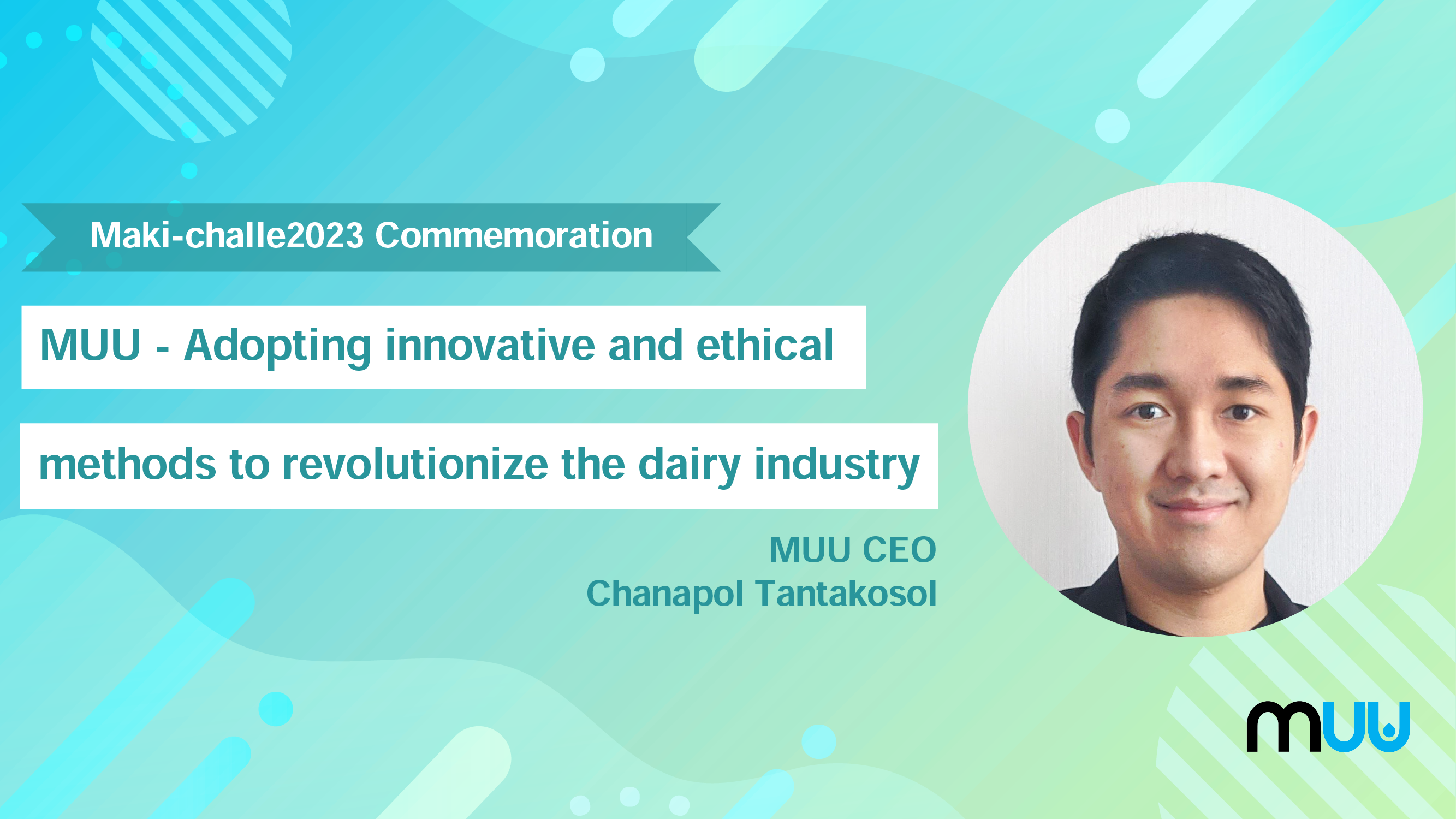
Makinohara City, which is located in the Shizuoka prefecture of Japan, organized a contest for start-ups in October 2023. The contest, titled as “Makinohara-shi Challenge Business Contest” (MakiChalle 2023), provided a platform for aspiring entrepreneurs to present innovative ideas. This was the second contest of its kind held in the city.
In MakiChalle 2023, startup companies from all over the world presented their ideas and business plans to address market gaps in the local community by utilizing the “industrial resources” and “tourism resources” of the city. EXPACT CEO, Mr. Takachi participated as a judge in the second edition of the contest.
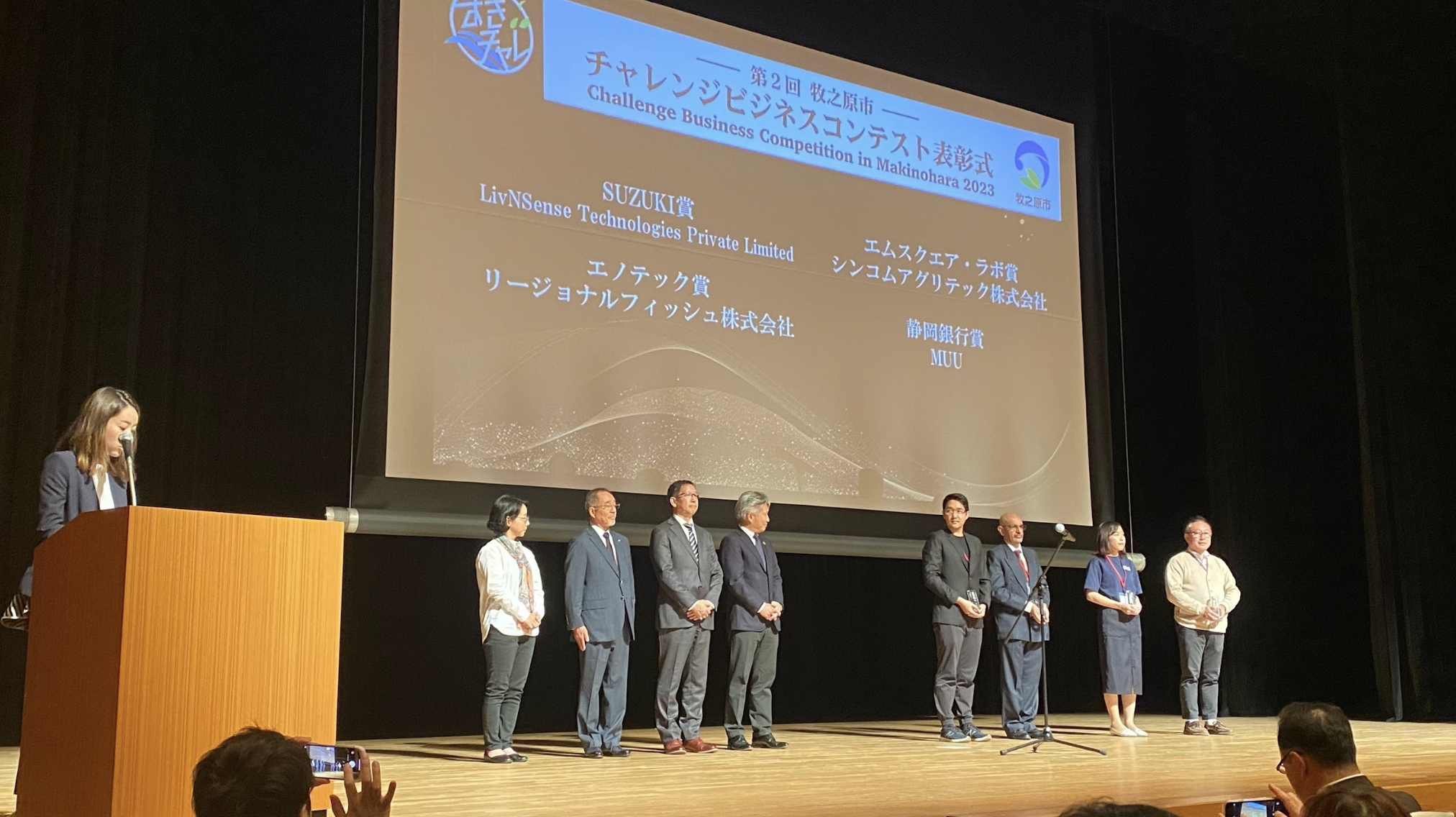
In this article, we interviewed CEO Chanapol Tantakosol of MUU, one of the participants in MakiChalle 2023. In the interview, we talk about MUU’s innovative dairy products, the CEO’s view of MakiChalle 2023, and the company’s plan to enter the Japanese market.
ーThank you for your time today. It’s very nice to meet you.
Mr. Chanapol: Nice to meet you, too.
ーFirst of all, could you tell us a little bit about yourself and how the idea for MUU was formed?
Mr. Chanapol : I graduated from a university in Thailand with a chemical engineering degree. After that, I have worked at one of the largest oil and gas companies in Thailand. However, after a certain period of time, I realized that I was just doing routine work which was not challenging enough. This prompted me to leave the company and establish my first startup in the logistics segment. After that, during COVID-19 , I had a chance to watch several documentaries about how animal farming has a detrimental effect on both humans and the environment. This sparked the idea of transitioning away from animal farming and is the basis of how the story of MUU began.
ーCould you give us a brief overview of MUU’s product, commitment, and motivation?
Mr. Chanapol : We are engaged in the development of alternative milk and dairy products which taste similar to their traditional dairy counterparts. We started this company because animal farming these days has a negative impact on both human health and the environment.For instance, most conventional dairy products sold in markets contain substances such as hormones, cholesterol, and antibiotics which may be detrimental to human health. Also, farm-raised cattle are one of the major contributors of greenhouse gas emissions globally.
I thought of creating an alternative dairy product that is not directly derived from animals.While plant-based alternatives are widely available in the market, many consumers have not developed a taste for them. As a result, these products have not attained mass approval in certain markets.
In summary, we are trying to develop an alternative milk product that not only tackles climate concerns, but also appeals to the taste preferences of a wide demographic of consumers.
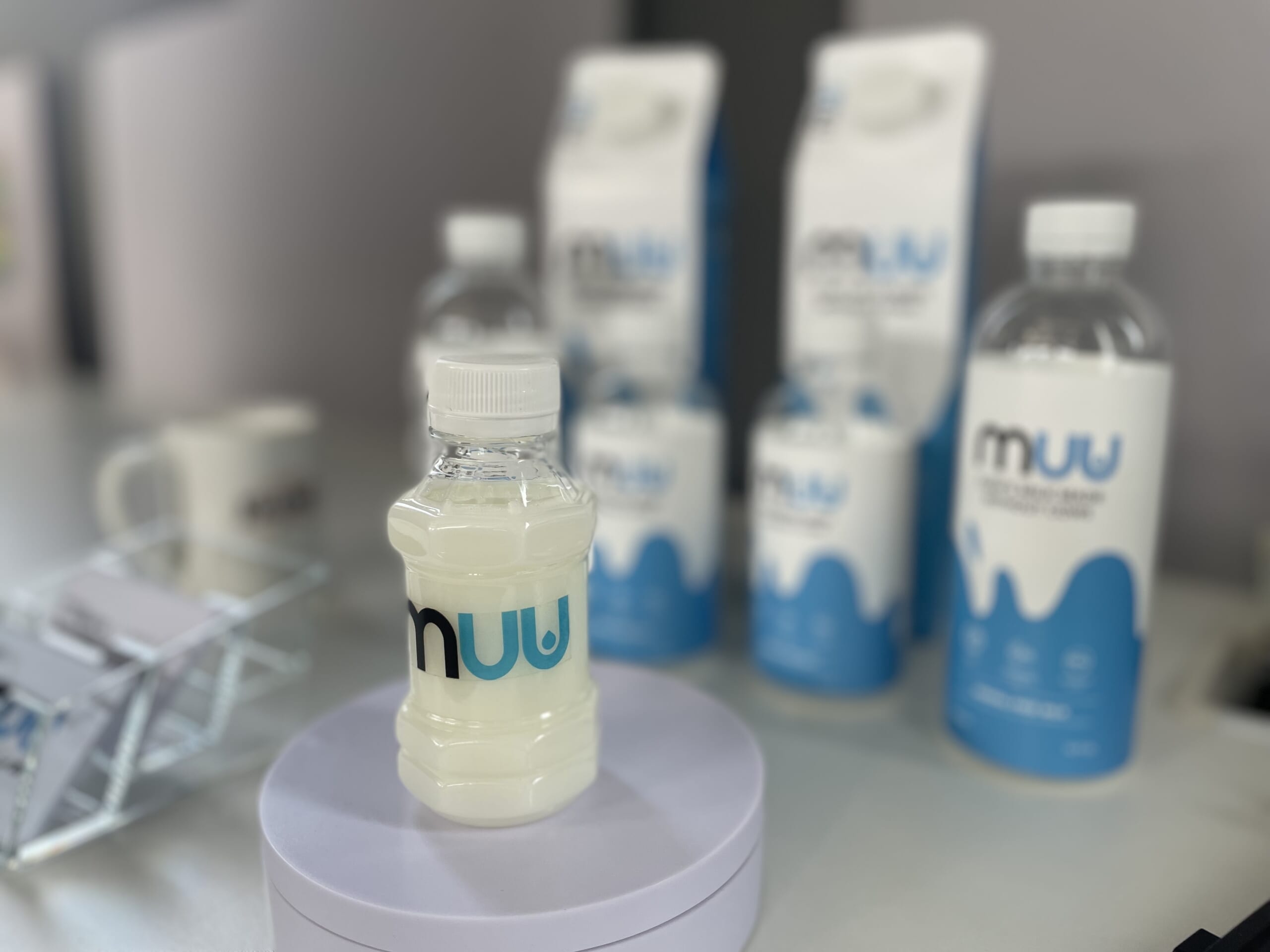
ーWhat are the key ingredients that MUU uses for producing milk? How are they obtained?
Mr. Chanapol : In order to fully understand the key ingredients utilized, we first conducted some scientific research to understand what makes conventional dairy milk taste uniquely different from plant-based alternatives. Consequently, we discovered that there are four major nutrients in dairy products, which are protein, fat, sugar and water.Out of these four nutrients, protein is responsible for the unique taste and the texture of milk. When examining protein more closely, casein protein and whey protein were isolated as the crucial components for the signature taste.
Plant-based products taste different because they contain different types of protein components, such as soy protein and oat protein, which are completely different in molecular structure from casein and whey proteins. What we are trying to do is to produce the same casein and whey protein molecules, by utilizing the “precision fermentation and recombinant protein technology” technique. It has been available for several decades to produce human growth hormone, insulin and vanilla flavor essence. The process involves using certain microorganisms or microbes as a small factory that produces the desired substances. We train the microorganisms to be able to produce the exact same molecules for casein and whey proteins that are produced by cows.
ーDo you also produce other alternative dairy products, such as butter and yogurt?
We basically produce milk protein in powder form. Therefore, we are seeking local dairy producers as partners, including those based in Makinohara-city, to process our protein powder into end products. These products include yogurt, or ready-to-drink tea or coffee. Therefore, we do not directly produce the alternative dairy products. Instead, we focus on producing milk protein powders and partner with F&B partners to formulate the end products.
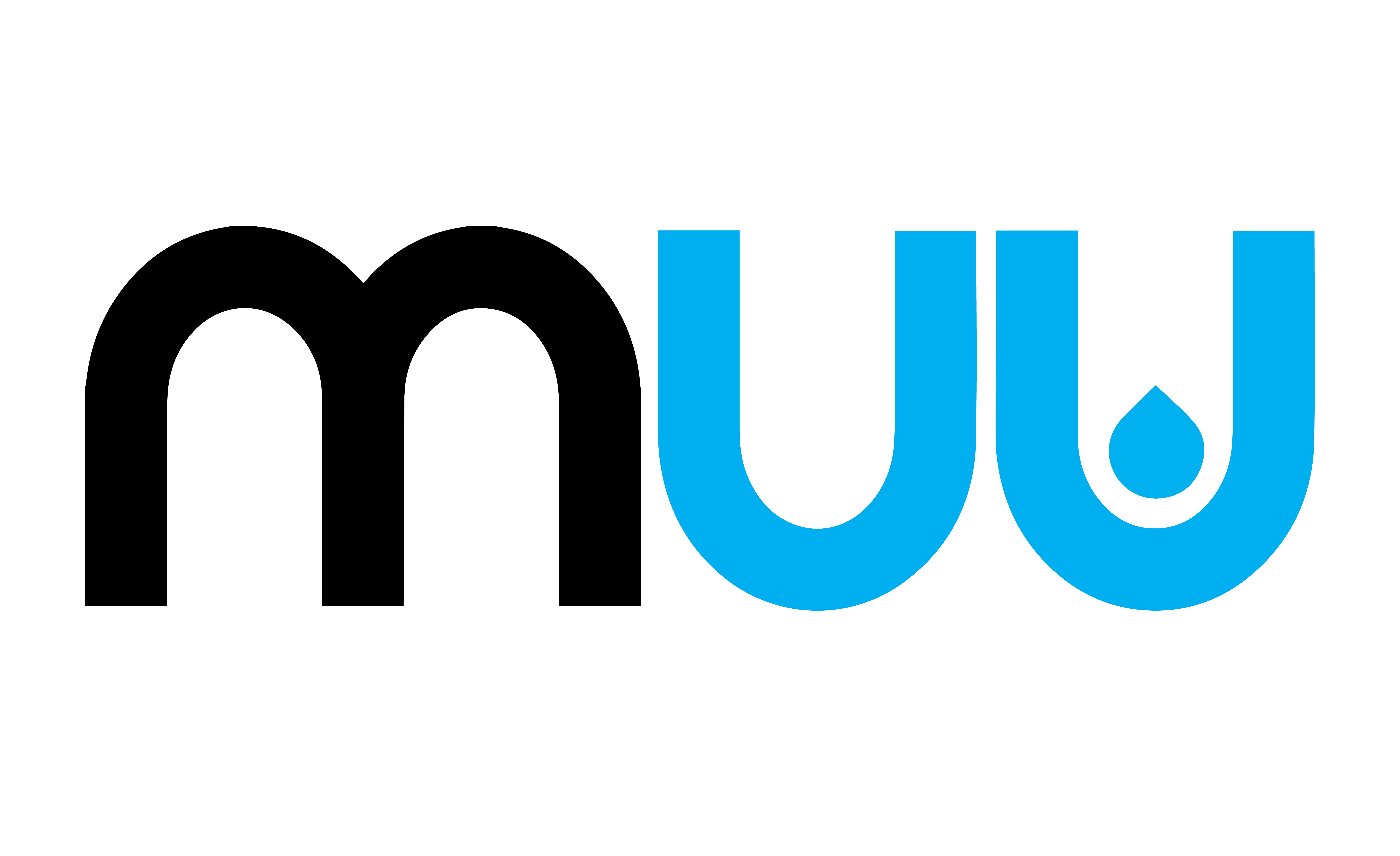
ーHow many members are there in MUU currently?
Mr. Chanapol: Currently, we have around 8 people at MUU. There are 2 people in the business development team. The other 6 people are scientists who are engaged in research and development.
ーWas MUU founded by just bootstrapping, or did you secure some fundings from private equities or venture capitalists? Are you also planning to raise further funds in the foreseeable future?
Mr. Chanapol: We first founded our company by bootstrapping. However, after a few months after that we raised some funds at the pre-seed round from venture capital firms in Thailand and Singapore. Currently, we are raising around 1.8 million dollars at the seed round.
ーWho are your target customers in Japan?
Mr. Chanapol: We will follow a B2B business model whereby the milk protein powder that we manufacture will be sold to beverage producers in Japan. Therefore, dairy, coffee and various other beverage producers, who will use the milk protein powder as a key ingredient, are our main prospective customers.
ーDo you have any particular firms, or general regions in Japan where you are targeting at this point?
Mr. Chanapol: Currently, we are looking for partners who can launch products that use our protein powder. Specifically, we are looking for well-known dairy producers and beverage manufacturers as our clients. The reason is that since our product will be new to the market, some customers may have concerns about the product’s quality. However, if we partner with reputed companies that are recognized by people, we expect that our product will be adopted by consumers more smoothly. For example, we were able to get connected with Itoen after the Makinohara Challenge, which is a quite large and famous tea producer in the region. We are looking to partner with such clients in general.
As for our target region, we aim to start with cities such as Tokyo, Osaka and other big cities. This is because our prospective customers will be those who care about animal welfare and environmental sustainability.In my opinion, it is a better idea to first enter large cities where we can cater to a large base of such customers. Thus, upon launch, the product will be categorized in the premium segment.
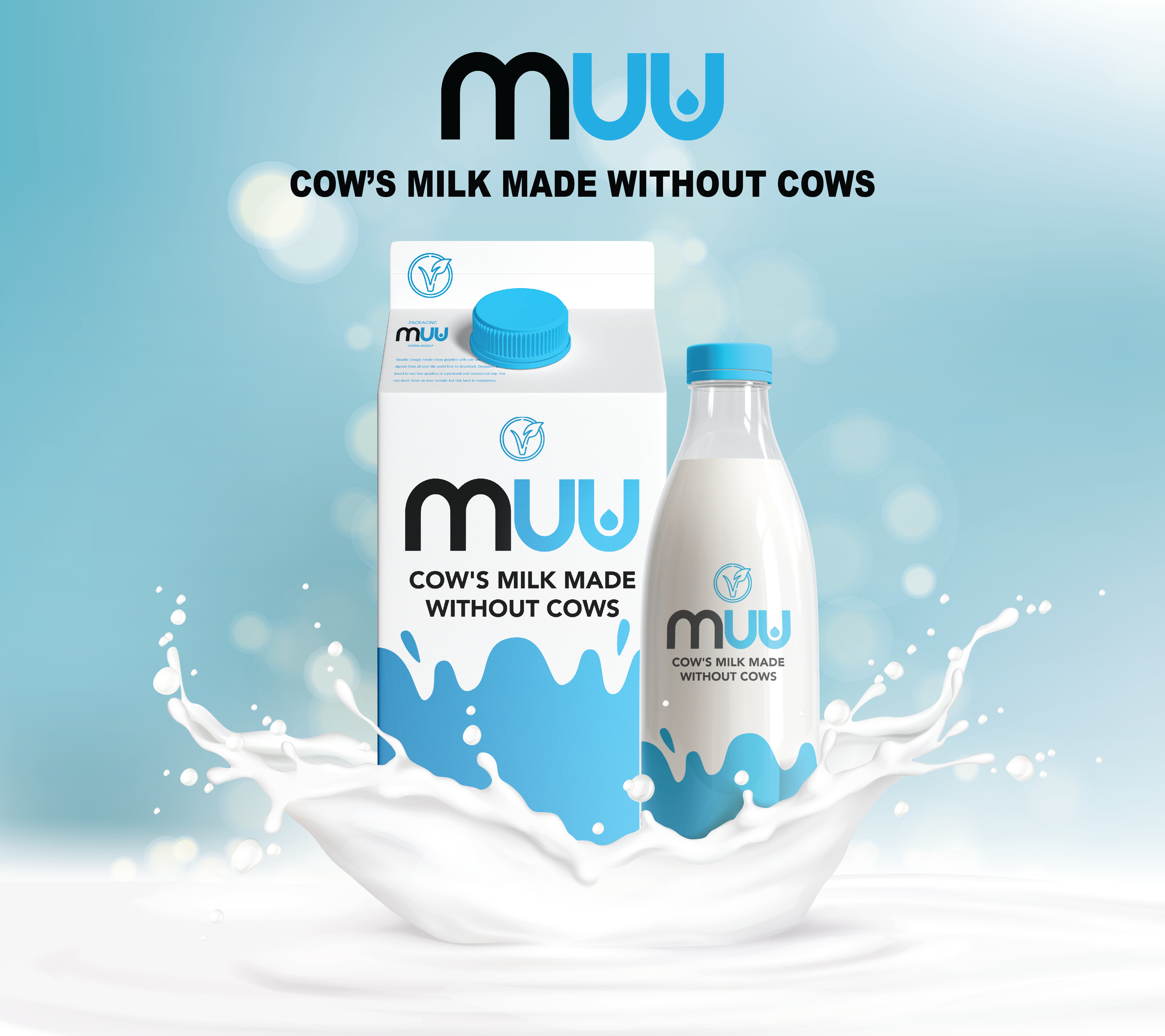
ーCould you also speak more about sales strategy in Japan, and what other kinds of partnerships(e.g. marketing, legal partnership) you are also looking for?
Mr. Chanapol: Currently, we have not been to Japan and our market entry strategy is in the planning stage. We intend to partner with producers who can formulate the end product using our milk powder.
In terms of the marketing process, I would say we are flexible. For example, we can either collaborate with the clients or they can engage in marketing activities independently. We are completely open to discuss ideas in this regard.
ーCould you also tell us about the plan of growth strategy for the firm after seed capital raised? How are you planning to use the seed fund?
Mr. Chanapol: We are planning to use the seed fund mostly for our product development and scaling along with receiving regulatory approval for sale. Since our product is completely new to the market, we first need to get through the safety assessment process and receive regulatory approval. As for the markets other than Japan, we are also planning to do soft products in Singapore and Hong Kong as well, once the regulatory approval is received.
ーConsidering the current geopolitical and macroeconomic factors causing challenges in terms of fundraising, could you tell us how this changed MUU’s strategy in terms of funding? Particularly, I would like to ask if MUU is focusing more on either profit or growth at this point.
Mr. Chanapol: The current situation definitely changed the fundraising strategy. However, we are still at the stage of research and development and have not commercialized our product. This means we still have to spend money every month, but we firmly believe that our product will create a huge impact once it is released to the market. Yet, we also changed our fundraising strategy, specifically that we are looking for government grants to support our expenses as well. We are also trying to cut costs by doing R&D in a smarter way and using chemicals and materials efficiently. This way we can reduce R&D costs furthermore but still be able to achieve our milestones. I would say these are how we adjust to the current environment of fundraising.
ーFrom here, we want to hear about your experience in MakiChalle 2023. Was the Makinohara Challenge your first time to participate in a business contest in Japan?
Mr. Chanapol: Yes, it was the first time for me to participate in a competition in Japan. Although I have already been to Japan so many times, it was just as a tourist. This is because, generally from our perspective, it is quite hard to enter the Japanese market due to the cultural differences and language barrier. Therefore, it was quite a great experience for me to be able to join such a prestigious business contest in Japan for the first time.
ーWhat made you decide to participate in MakiChalle?
Mr. Chanapol: The first time I knew about MakiChalle was when I went to Vietnam for a business competition. That time, the organizer of MakiChalle introduced me to the Makinohara challenge, suggesting that I participate in the competition. It was quite an interesting idea to me because it would be the first time I would visit Japan for business purposes.
ーCould you tell us about the outcome of the Makinohara Challenge for MUU? Were you able to find both your interest in the Japanese market and potential partners?
Mr. Chanapol: First of all, it was a great opportunity to be able to present our business in front of many potential partners from Makinohara city, and some of them were actually interested in our business. The fact that Makinohara City is one of the top tea producing cities is fortunate for us because we were able to partner with several companies who can make final products using our protein powder. We were able to get interest from companies such as Itoen, which is one of the biggest tea producing companies in Japan. Furthermore, it was also a good experience to be able to get some awards at competitions. Overall, it was beneficial for us to be able to get connections with potential clients in Japan.
ーWhat kind of feedback or reviews did you receive from potential clients in Japan at MakiChalle?
Mr. Chanapol: Most of the people showed a huge interest in our products. We managed to do some sample testing with people there, and they seemed to be quite excited about our products because they are completely innovative products. I particularly think the concept of making cow-milk without cows itself was quite interesting to those people.
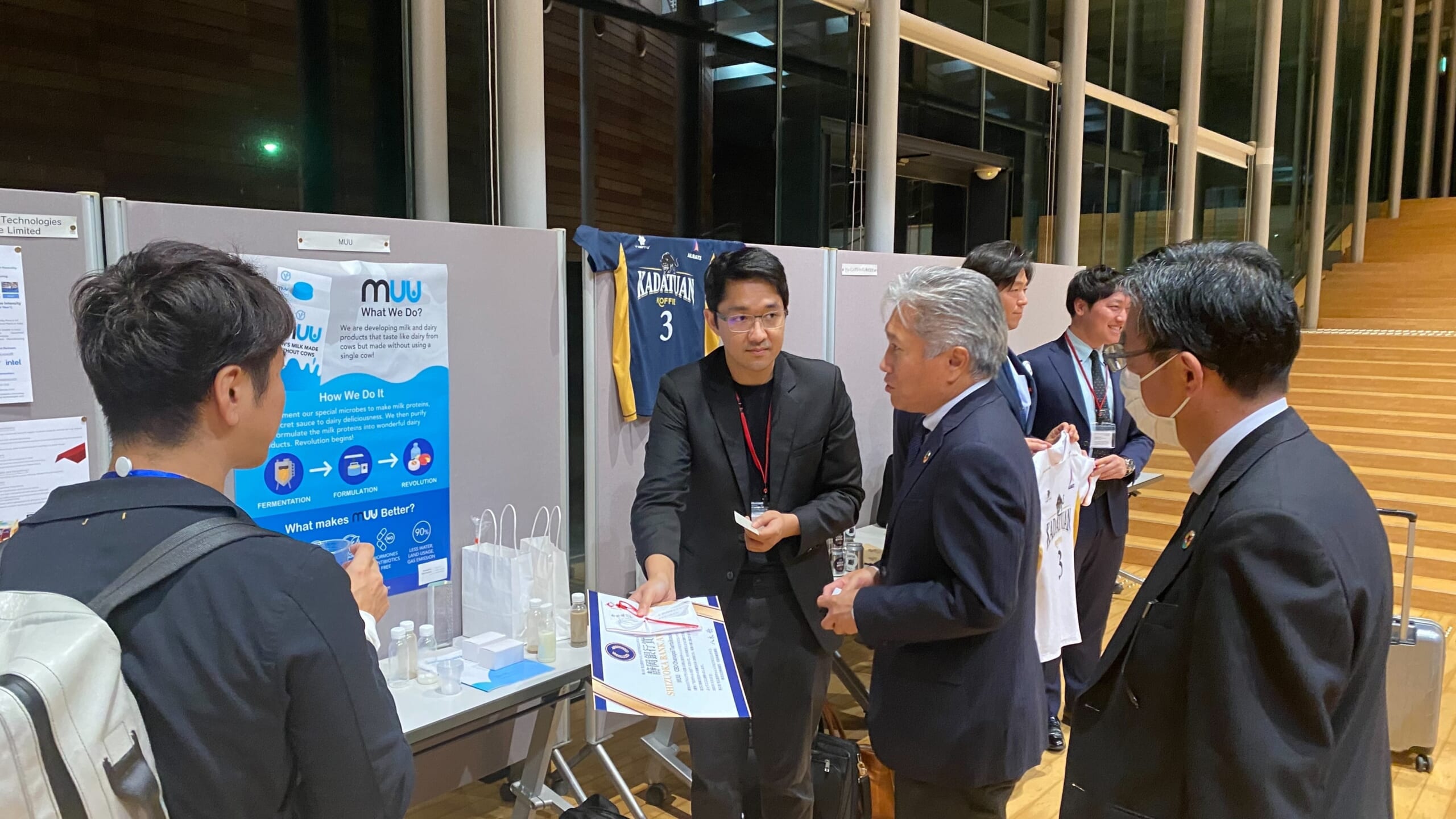
ーThank you very much. MUU’s product is innovative and good for humans, animals, and the environment. We would like to try beverages that use MUU’s powder in the future.
[Company overview]
【Name of company】MUU
【URL】https://www.drinkmuu.com/
【Date of company establishment】2021
【Representative】Chanapol Tantakosol
【Location】Bangkok, Thailand

